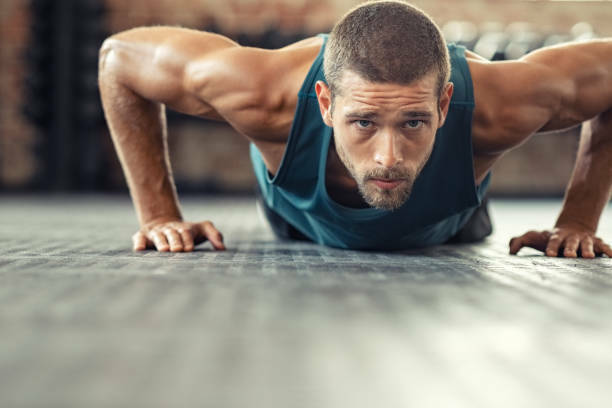There are a lot of calisthenics exercises that you can do. However, not all of them are suitable for advanced athletes. In this blog post, we will discuss the best calisthenics workout plan for athletes who want to get stronger and more muscular. We will also go over the pros and cons of every exercise, as well as how to do them in a proper form. Let’s get started!
What Do You Need For Calisthenics Exercises ?

All you require for calisthenics exercises is your own body and some motivation, because the best calisthenics exercises are bodyweight exercises!
However, because you are using your own body as resistance, these exercises can be more difficult than other types of workouts.
This makes it a great choice for people who don’t have access to weights or other equipment.
But there are also exercises where you need equipment like pull up.
For the pull-up, you require a pull-up bar.
What Are Calisthenics?
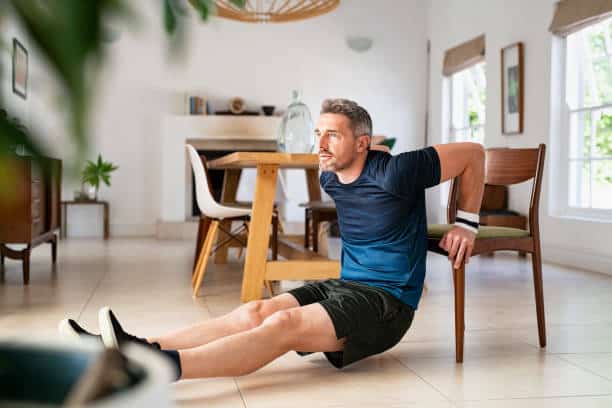
Calisthenics are a form of exercise that uses your own body weight as resistance.
This type of workout is great for people who don’t have access to a gym or other type of equipment.
The Benefits of Calisthenics?

There are many benefits of calisthenics exercises.
For one, they are a great way to get stronger and more muscular.
These exercises can also help improve your balance and coordination.
Additionally, calisthenics workouts are very versatile and can be done anywhere, at any time.
Some of The Other Benefits of Calisthenics Include:
- They are great for toning your muscles
- They can help improve your cardiovascular health
- They can help increase your flexibility
- They are a great way to burn fat and lose weight
The Disadvantages of Calisthenics?

While there are many benefits of calisthenics exercises, there are also some disadvantages.
One of the biggest disadvantages is that these exercises can be very difficult.
If you are new to calisthenics, don’t worry we have also the best calisthenics workout plan for beginners in our blog, it may take some time to get used to the movements and progress to more advanced exercises.
Additionally, because calisthenics use your own body weight as resistance, you may not be able to progress as quickly as you would with other forms of exercise.
Some of The Other Disadvantages of Calisthenics Include:
- They can be repetitive and boring
- You may need to supplement with other forms of exercise to see results
- They can be dangerous if not done properly
Now that we’ve gone over the pros and cons of calisthenics, let’s discuss some of the best exercises for advanced athletes.
Body Weight Exercises Examples
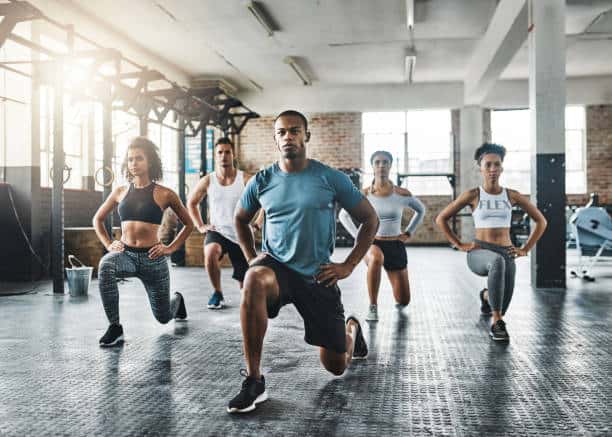
- single leg squats
- decline push-ups
- Push up
- L sit
- Windshield Wipers
- Single Leg Tuck-up
- Hanging leg raise
- incline bench press
- Lying Leg Raises
- Dragon Flag Negatives
- Kneeling Ab Wheel Rollout
- Sit-ups
- chin-ups
- Lunges
- Crunches
- Planks
- Jumping jacks
- Burpees
- Skater squats
Are There Some Things to Know Before Starting With The Advanced Calisthenics Exercises?
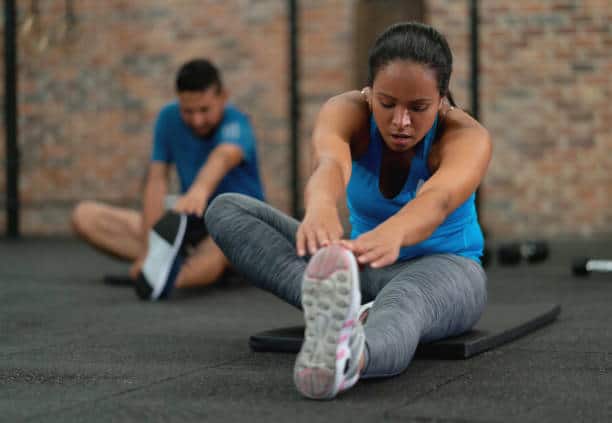
Yes there are some important things to know before really starting out:
- Make sure that you warm up before doing any exercises.
- Focus on your breathing.
- Make sure that you are using the correct form.
- Don’t try to do too much too soon.
- Take your time and focus on quality over quantity.
The Best Calisthenic Exercises for Advanced Athletes
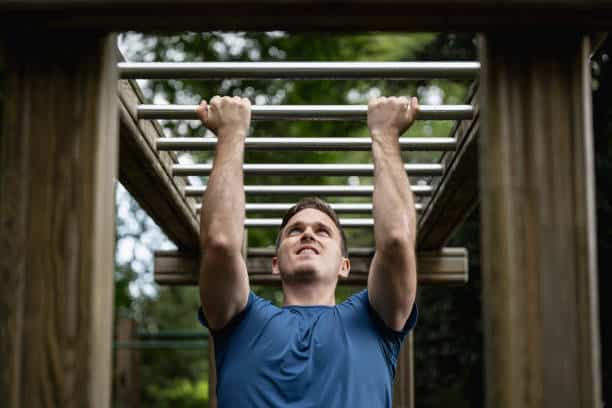
Some of the best calisthenics exercises for advanced athletes include:
- Pull-up
- Push-ups
- Dips
- Squats
- Lunges
- Dragon flag negatives
Lets Start With The Calisthenics Training!
Do not forget the basic movements for this full body workout.
This calisthenics movements should train your entire body and even help ypu to increase your muscle mass.
Add this full body workout to your calisthenics routine
Monday:
20 push-ups
15 dips
20 pistol squats
10 lunges (each leg)
8 Dragon flag negatives
Repeat this circuit three times.
20 Push-Ups
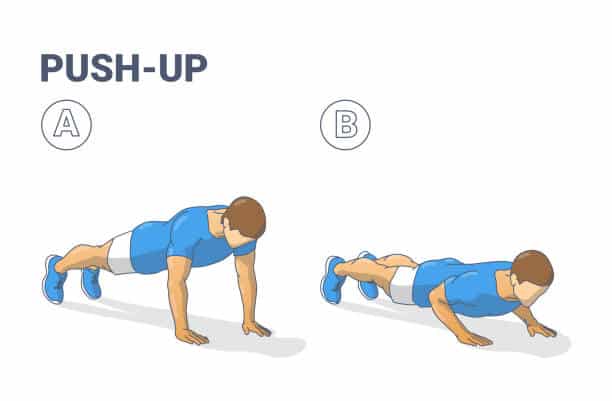
To do a push-up, start in a plank position with your hands at shoulder width and your feet hip-width apart.
To complete the exercise, lower your chest to the ground while keeping your core taut and maintaining a straight line from shoulders to hips.
Return to the beginning by pressing back up to the starting point.
15 Dips
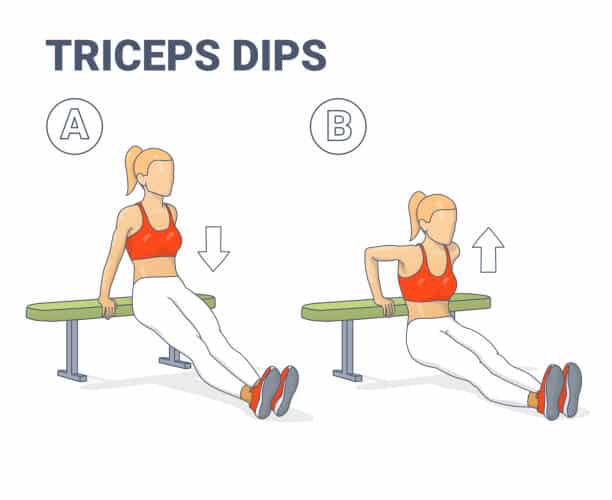
Start with your hands shoulder-width apart on a flat bench.
Extend your legs out in front of you, keeping them together.
Lower your body down until your elbows are at 90 degrees, then press back up to the starting position.
Now perform 15 dips
20 Pistol Squats
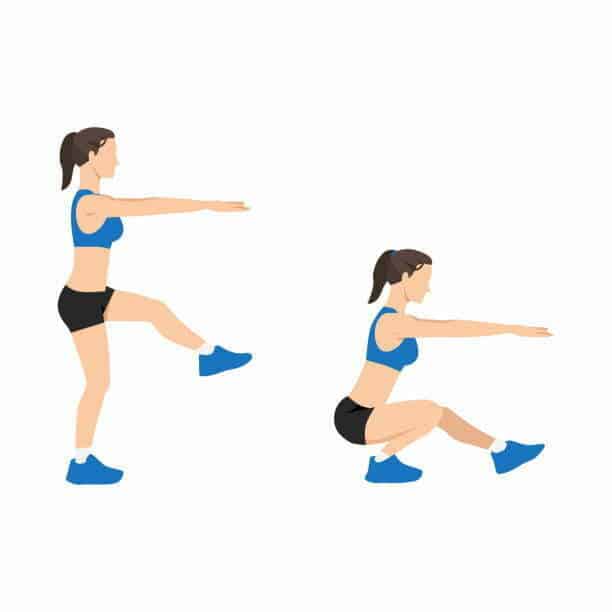
To do a pistol squat, start by standing with your feet shoulder (each leg)
To do a lunge, start by standing with your feet hip-width apart and your hands on your hips.
Step forward with one leg and lower your body until both knees are bent at 90 degrees.
Make sure that your front knee is not extended past your toes and that your back knee doesn’t touch (each leg)
10 Lunges (Each Leg)
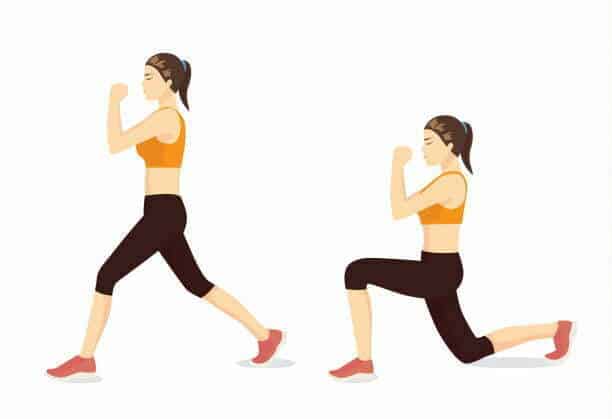
To do a lunge, start by standing with your feet hip-width apart and your hands on your hips.
Step forward with one leg and lower your body until both knees are bent at 90 degrees.
Make sure that your front knee is not extended past your toes and that your back knee doesn’t touch the ground.
Push back up to the starting position and repeat with the other leg.
Complete a total of ten lunges, five on each side.
8 Dragon Flag Negatives
To do a Dragon flag negative, start by lying on your back on a flat bench with your hands at your sides.
Raise your legs and hips off (each leg)
Tuesday:
15 pull-ups
25 push-ups
20 lunges (each leg)
26 pistol squat
10 Dragon flag negatives
Repeat this circuit three times.
15 Pull-Up
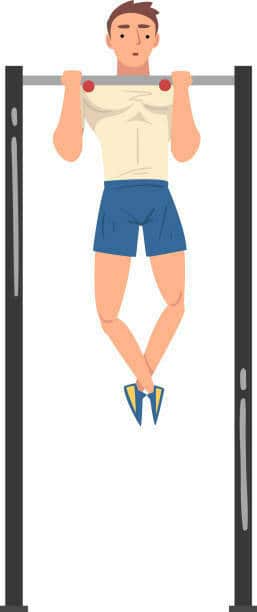
Begin by hanging from a pull-up bar in an elevated position.
With your hands slightly wider than shoulder-width apart, Take the overhand grip (palms facing away from your body).
If you can’t reach the bar from a standing position on the floor, place a box beneath you and stand on it.
You’re in your starting position when your hands are on the bar and you’re breathing.
Inhale, then exhale.
Raise your legs off the floor or a box and hang from the bar engage your core and pull in in your belly button toward your back.
Take a big step forward and sink into your heels. Bring your shoulders back and also bring them down.
Raise your upper body up toward the bar as far as you can with your elbows bent and forearms parallel to the ground.
If you want to make the exercise easier, imagine bringing your elbows toward your hips. Avoid swinging your legs around or hunching up your shoulders as you move.
Exhale at the top of the movement and make sure your shoulder blades are kept back and down at all times. Inhale as you reach up to the ceiling.
Raise your body back up and extend your elbows, then lower it back down to the start position.
25 Push-Ups

You can find the guide at the top.
26 Pistols Squat

You can find the guide at the top.
10 Dragon Flag Negatives
You can find the guide at the top.
Wednesday:
30 pistol squats
18 pull up
18 dips
20 lunges (each leg)
12 Dragon flag negatives
Repeat this circuit three times
30 Pistol Squats

You can find the guide at the top.
18 Pull Up

You can find the guide at the top.
18 Dips

You can find the guide at the top.
20 Lunges (Each Leg)

You can find the guide at the top.
12 Dragon Flag Negatives
You can find the guide at the top.
Thursday:
15 pull-ups
25 push-ups
20 squats
24 dips
16 Dragon flag negatives
Repeat this circuit three times.
15 Pull-Up

You can find the guide at the top.
25 Push-Up

You can find the guide at the top.
20 Squats

You can find the guide at the top.
24 Dips

You can find the guide at the top..
16 Dragon Flag Negatives
You can find the guide at the top.
Friday:
20 pull-ups
28 dips
25 push-up
30 pistols squat
20 Dragon flag negatives
Repeat this circuit three times.
20 Pull-Up

You can find the guide at the top.
28 Dips

You can find the guide at the top.
25 Push-Up

You can find the guide at the top.
20 Dragon Flag Negatives
You can find the guide at the top.
Saturday:
25 squats
20 lunges (each leg)
15 pull-up
24 Dragon flag negatives
Repeat this circuit three times.
25 Squats

You can find the guide at the top.
20 Lunges (Each Leg)

You can find the guide at the top.
15 Pull-Up

You can find the guide at the top.
24 Dragon Flag Negatives
You can find the guide at the top.
Sunday:

Rest Day!
Make sure to still get in some light activity, like a walk or easy bike ride.
Stretch for at least 20 minutes to maintain flexibility.
Final Words

This is a great workout plan for those who are already advanced in their calisthenics journey.
Remember to focus on proper form and technique with each exercise, and to rest when needed.
Best of luck!
I hope you enjoyed this blog post!
If you have any questions or comments, please feel free to leave them below.
FAQ

What If I Can’t Do a Bodyweight Exercise?
If you can’t do some of the exercises, you can try substituting them with other exercises that work the same muscle groups.
For example, if you can’t do pull-ups, you could try doing inverted rows instead.
Or, if you can’t do dips, you could try doing push-ups.
What If I Want to Add Weight to Some of The Bodyweight exercises?
If you want to add weight to some of the exercises, you can try using a weighted vest or holding a dumbbell in one hand while you do the exercise.
For example, if you want to add weight to your push-up, you could try wearing a weighted vest or holding a dumbbell in one hand while you do the push-ups.
Is it OK to rest between sets?
Yes, it is OK to rest between sets.
In fact, it is recommended that you rest for one to two minutes between sets.
This will help you avoid fatigue and maintain your focus during the workout.
If you feel like you need to rest for longer than two minutes, that’s OK too. Just listen to your body and do what feels best.
Should I warm up before each workout?
Yes, you should warm up before each workout.
A good warm-up will help improve your performance and reduce your risk of injury.
A simplewarm-up could include light cardio (such as jogging or jumping jacks) and dynamic stretching (such as leg swings or arm circles).
You can also find more specific warm-up exercises for each workout in the exercise guides above.
Should I stretch after each workout?
Yes, you should stretch after each workout.
Stretching will help improve your flexibility and range of motion, which can make the exercises feel easier and help you avoid injury.
You can find more specific stretching exercises for each workout in the exercise guides above.
Thanks for reading! Best of luck with your workouts!
Please let me know if you have any questions or comments by leaving them below.

